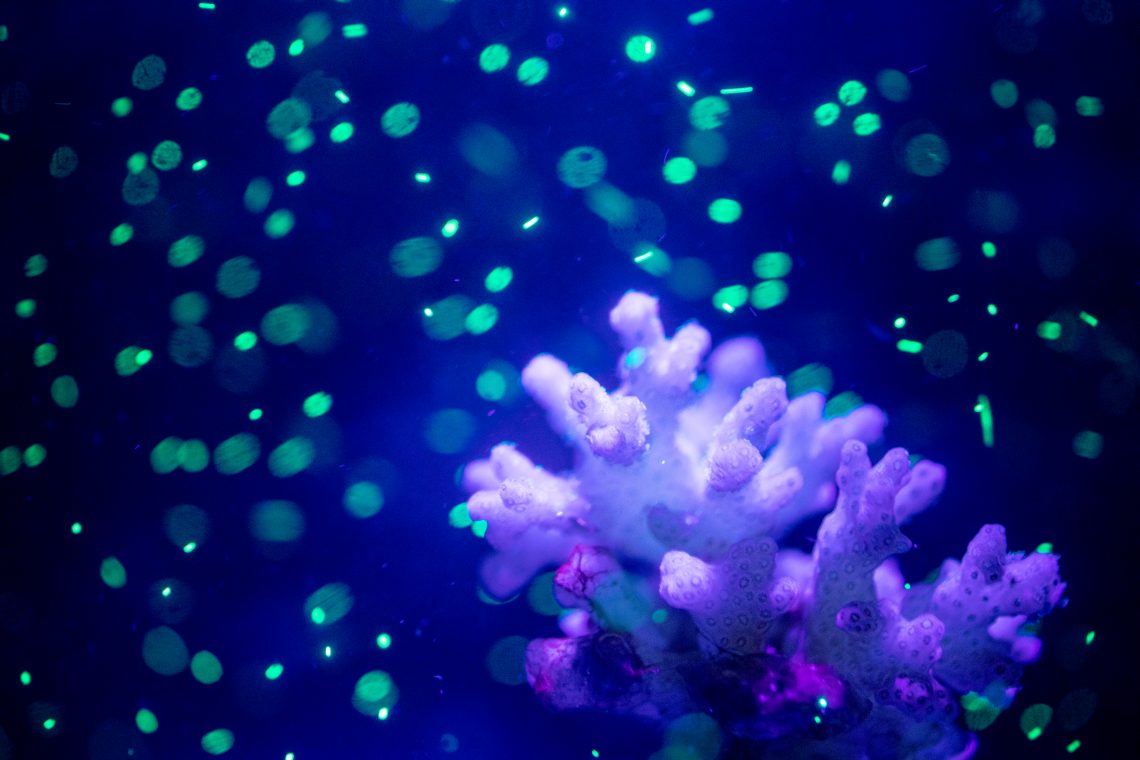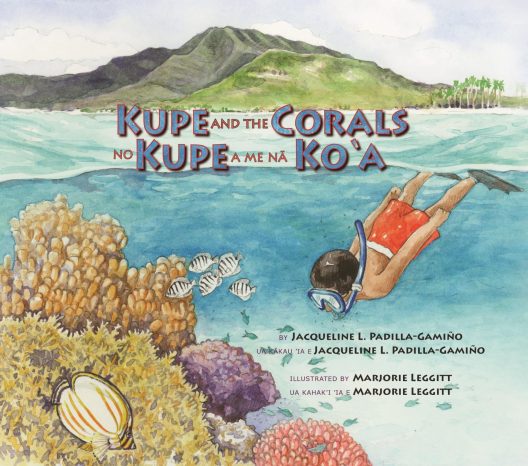Jacqueline Padilla-Gamiño Receives National Science Foundation CAREER Award

SAFS Assistant Professor Jacqueline Padilla-Gamiño was recently named the recipient of a National Science Foundation (NSF) CAREER award. This prestigious award will support Padilla-Gamiño’s research to explore how changing oceans and plastic pollution will impact coral reef ecosystems; it will also support continued education and outreach initiatives with citizens, teachers, and grade school students in Hawaii.
“I am humbled and honored to receive the NSF CAREER award,” said Padilla-Gamiño. “It’s a unique opportunity to integrate long-term collaborations with school teachers and students into my research program, and it’s the link between the two that I am particularly excited about.”
The NSF selects award recipients who are faculty members at the start of their careers with the potential to serve as academic role models in research and education and to lead advances in the mission of their department or organization. The intent of the NSF CAREER program is to provide stable support that enables awardees to develop their careers not only as outstanding researchers, but also as educators demonstrating commitment to teaching, learning, and dissemination of knowledge.
Current models predict that more than 75% of coral reefs will experience annual severe bleaching events before 2070 due to rising temperatures. Coupled with the approximately 8 million tons of plastic entering the ocean each year (which is expected to increase 10-fold by 2025), the health of the world’s reefs are of great concern. Padilla-Gamiño’s CAREER research will identify and quantify the presence of microplastics (small pieces of plastic, less than 5 mm in length) in coral reefs, and examine the effects of thermal stress and microplastic exposure in coral performance. Part of this research also involves determining which species of coral are consuming microplastics and if they are actively targeting them. Studies on other marine organisms show that consumption of microplastics directly impacts the endocrine system and can have effects on reproduction and growth.
Padilla-Gamiño’s CAREER award will also provide an opportunity to engage and educate the broader scientific and non-scientific communities about the significance of climate change and plastic pollution and the connectedness between the two. Previous NSF support helped Padilla-Gamiño develop coral reef education workshops for K–12 teachers in Hawaii, where she used her widely circulated children’s book, Kupe and the Corals, as an introductory lesson to coral reefs. In addition to English, the book has been translated into Hawaiian, French, Spanish, Paumotu and Tahitian. This has allowed teachers to amplify the message and connect with students and parents from diverse backgrounds. Elementary school teachers from Hawaiian immersion programs were particularly excited to work with Padilla-Gamiño who, as Latina, serves as a role model for underrepresented groups in science.
“In this project, we will work with middle school teachers and their students to implement a coral/climate change lesson plan and develop place-based science education activities centered around plastic pollution,” said Padilla-Gamiño. “We have chosen to work with this group of students because research has shown that middle school is the time when girls and minority students start to lose confidence in their abilities to do math and science.”
Teachers and students in Hawaii will work together with Padilla-Gamiño’s research team to conduct plastic collections and experiments in their communities. One of the goals of the research is to create an advanced catalogue of microplastics found in the marine environment and provide an important baseline for Hawaiian reefs. Padilla-Gamiño describes the education program and citizen science initiatives as part of a larger, long-lasting relationship with teachers in Hawaii. The team will work closely with the He’eia National Estuarine Research Reserve, which integrates traditional knowledge and contemporary science and helps communities to address issues such as climate change, habitat restoration, and water quality in Hawaii.

